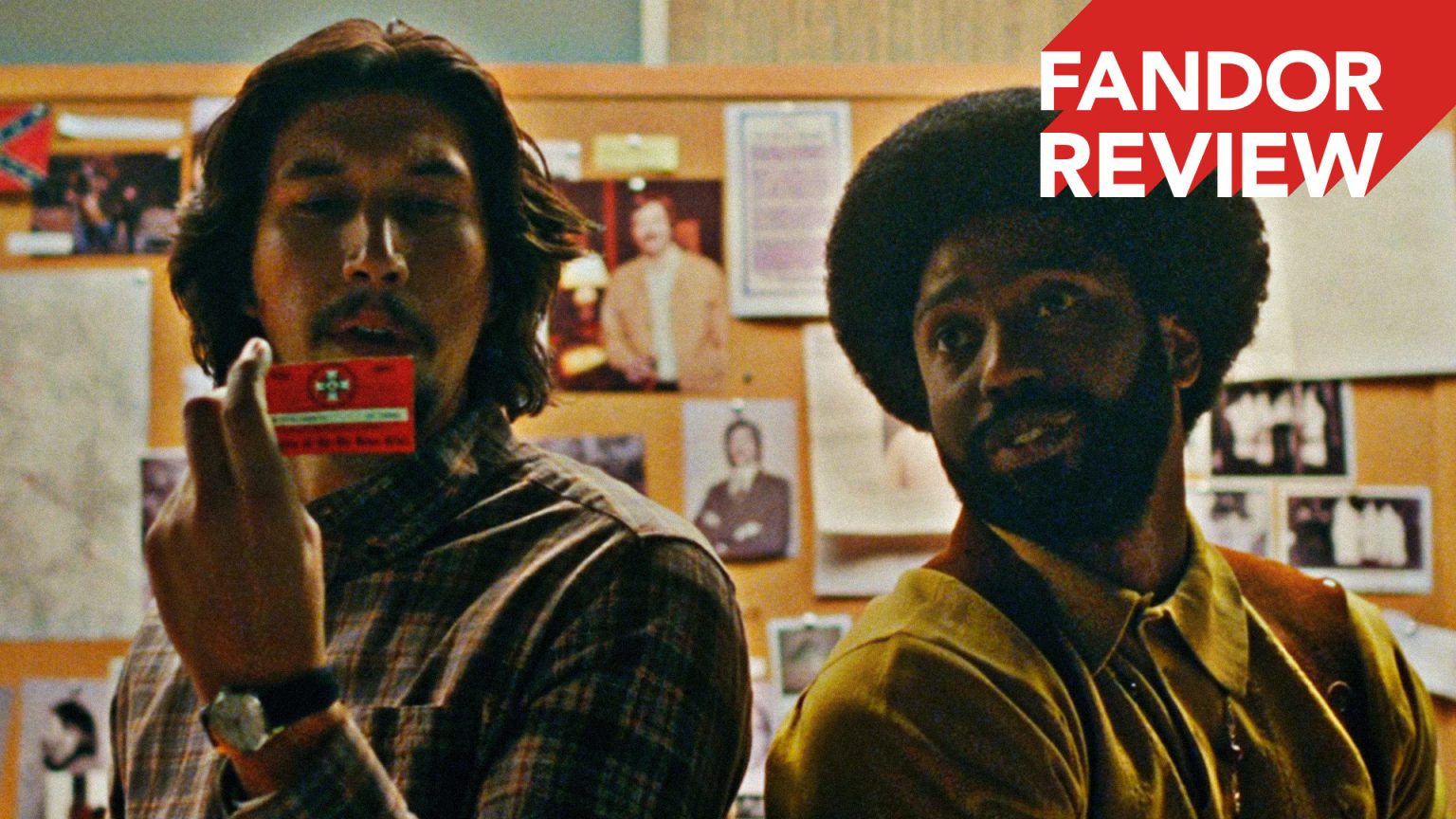It’s no coincidence that the release of BlacKkKlansman coincides with the anniversary of the Charlottesville riots. From the opening shot, the audience is acutely aware of director Spike Lee’s intense intentionality. Though Lee’s latest movie is set in the past, it is very much “of the moment.” It is never more clear than in how Lee leaves you; how after the final scene plays out, and the credits roll, and the lights in the theater come up, you realize that you have to step back out into the real world and confront all of the evils and bigotry that Lee so expertly locates and lampoons.
The movie opens on the fictional Dr. Kennebrew Beauregard (Alec Baldwin), a lawmaker recording narration for what might become a piece of racist propaganda. Through the scene, while moments from Gone with the Wind and The Birth of a Nation are projected over him, Beauregard fumbles and forgets the lines of his own hate speech, amplifying the absurdity of his words, but also shining a light on the way a person in power can use hatred as a means of connecting with and controlling other people. Here, Baldwin isn’t putting on his now infamous impression of Donald Trump, but he also sort of is. And this opening scene is the first of many references in the film to the current political and social climate facing the United States.
The movie itself is the story of real-life cop Ron Stallworth (John David Washington), who was the first black police officer in the city of Colorado Springs in the 1970s. Through a combination of intelligence and nerve, Stallworth quickly rises from the records room to the rank of detective. Almost on a whim, after reading a personals ad advertising the Ku Klux Klan, Stallworth contacts the local chapter and sets up a meeting. The man on the other end of the line is excited by Stallworth’s rhetoric (he knows it well, having likely heard it all his life) and invites him to show up in person. One problem, of course: Stallworth is black. Thus, he enlists the help of a fellow detective, Flip Zimmerman (Adam Driver) to pose as Stallworth for the in-person meetings with the Klan. Together, they infiltrate the KKK, learn about a possible attack on the region’s black civil rights leaders, and even come face-to-face with David Duke, played to loathsome perfection by Topher Grace.
The movie isn’t so much sprinkled with references to the modern political climate so much as it serves up those references by the heaping spoonful. In someone else’s hands, this might feel burdensome or forced, but in Lee’s, they are poignant, powerful, and exacting. Even when the movie makes you laugh — and since the racists in the movie are presented with a level of absurdity matching the absurdity of their rhetoric, they come off equally laughable and terrifying — he’s also making you cringe, or cry, or think hard about the world we live in.
There’s a scene in the movie after Stallworth is deep into the investigation: he’s pulled aside by his lieutenant, who informs him of how dangerous David Duke is because of how he’s trying to make racism mainstream, as a means to being elected to political office. Stallworth responds that he doubts the American people would elect a racist president. Though he’s been dealing with racism his whole life, over the course of the film, in his interactions with both the black student union and its amazing leader, Patrice Dumas (Laura Harrier), as well as Duke and the local Klan chapter leader Walter Breachway (Ryan Eggold), Stallworth comes to terms with the fact that the country he lives in is even more racist than he had once believed. And the end of the film (I won’t ruin exactly what happens here, but believe me, many essays could, and will, be written about it) finds him a much more socially conscious person.
Of course, the cruel truth is that we did elect a racist to the presidency. For Stallworth, a Trump presidency is still just one possibility among many; for us, it’s a sad reality. We know it’s possible because it happened. It’s still happening.
Duke’s rhetoric in the movie is disturbingly reminiscent of Trump on the campaign trail. During a dinner scene, as the Klan plays host to Duke, you can hear the diners echoing Trump’s words, “make America great again.” It’s a reminder that when people say they want a return to the “good old days,” that these are the days that they’re referring to.
While Stallworth and crew might be successful in their operation, we also learn how small that victory is, and the movie transitions from joy and celebration to stark sobriety like the flip of a switch. Over the course of the movie, Lee takes the audience for a ride; it’s the kind of experience where you almost forget you’re sitting in a theater with other people—you almost forget that you are watching a movie. You are experiencing it. And then Lee drops you back into reality, and it’s startling, and moving, and terrifying.
BlacKkKlansman is not just a great movie — from the directing to the writing, to the acting — but it is also an example of film as activism and protest. It protests the current administration, the rise of proto-fascist groups all over the country, and our own inability or unwillingness to advance as a society that can’t help but see minorities as “the other.” The result is not only one of the best movies of the year, but one of the most important films in recent memory.




